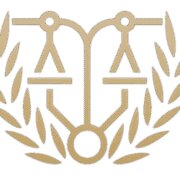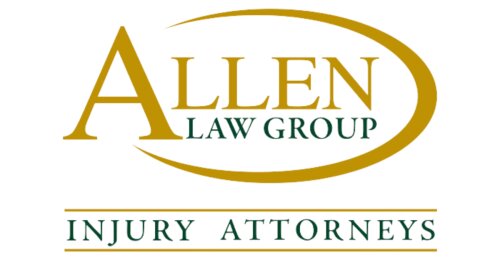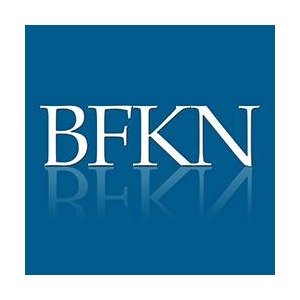Best Ethics and Professional Responsibility Lawyers in Illinois
Share your needs with us, get contacted by law firms.
Free. Takes 2 min.
Or refine your search by selecting a city:
List of the best lawyers in Illinois, United States

About Ethics and Professional Responsibility Law in Illinois, United States
Ethics and Professional Responsibility in Illinois refers to the body of laws, rules, and standards that govern the conduct of lawyers and other legal professionals within the state. These guidelines are designed to ensure that attorneys uphold the highest standards of honesty, integrity, and professionalism in their practice. In Illinois, these rules have been established by the Illinois Supreme Court primarily through the Illinois Rules of Professional Conduct. These rules outline the duties and obligations of attorneys to clients, the courts, and the public, requiring attorneys to act in their clients' best interests while maintaining respect for the legal system and avoiding unethical behavior.
Why You May Need a Lawyer
Legal matters involving ethics and professional responsibility may arise in various situations, such as:
- Facing disciplinary action or an investigation by the Attorney Registration and Disciplinary Commission (ARDC)
- Accusations of attorney misconduct, such as conflicts of interest, confidentiality breaches, or mishandling client funds
- Allegations of unauthorized practice of law
- Questions about fee arrangements, client communication, or proper handling of client property
- Needing to file a complaint against a lawyer for perceived unethical conduct
- Seeking guidance on how to ethically advertise legal services or manage client relationships
- Law firms or individual attorneys wishing to ensure compliance with evolving professional standards
In any of these scenarios, a lawyer experienced in ethics and professional responsibility can provide crucial advice, represent you in proceedings, and help you resolve issues in a way that protects your rights and reputation.
Local Laws Overview
Illinois has established a comprehensive system for regulating the conduct of legal professionals. The most important aspects include:
- Illinois Rules of Professional Conduct - Adopted by the Illinois Supreme Court, these rules serve as the primary code of conduct for attorneys in Illinois. The rules address issues such as competence, diligence, confidentiality, conflicts of interest, fees, client communication, candor toward the tribunal, and responsibilities regarding the legal profession.
- Attorney Registration and Disciplinary Commission (ARDC) - The ARDC is the agency responsible for registering attorneys and investigating complaints related to violations of ethical or professional rules. The ARDC can impose a range of disciplinary actions, from reprimands to disbarment.
- Disciplinary Process - If an attorney is accused of unethical behavior, the ARDC will investigate and may bring formal charges. The accused attorney has the right to respond, present evidence, and be represented. Hearings can result in dismissal, reprimand, suspension, or disbarment.
- Mandatory Reporting - Attorneys are obligated to report knowledge of another lawyer's serious misconduct or criminal acts, subject to certain exceptions.
- Continuing Legal Education - Illinois lawyers must stay updated on changes in ethical standards through continuing legal education, including specifically mandated ethics coursework.
Frequently Asked Questions
What is the Illinois Rules of Professional Conduct?
The Illinois Rules of Professional Conduct are a set of rules adopted by the Illinois Supreme Court that define the standards of ethical conduct for attorneys practicing in the state. They cover topics like client communication, confidentiality, fees, conflicts of interest, advertising, and more.
Who enforces ethics rules for lawyers in Illinois?
The Attorney Registration and Disciplinary Commission (ARDC) enforces ethical rules. It investigates complaints, conducts disciplinary proceedings, and recommends sanctions if a lawyer is found to have violated the rules.
What kinds of actions can lead to attorney discipline in Illinois?
Actions such as dishonesty, fraud, mismanagement of client funds, conflicts of interest, inadequate representation, breach of confidentiality, or other violations of the Illinois Rules of Professional Conduct can lead to disciplinary action.
How can I report attorney misconduct in Illinois?
You can file a complaint with the ARDC by submitting information online, by mail, or in person. The ARDC will review your complaint and determine whether to begin an investigation.
Can a client sue a lawyer for ethical violations?
Yes, if a lawyer’s unethical conduct causes harm or financial loss, a client may have grounds to file a civil lawsuit in addition to filing a complaint with the ARDC.
What is a conflict of interest for attorneys?
A conflict of interest occurs when a lawyer’s responsibilities to one client are materially limited by responsibilities to another client, a former client, or their own interests. Lawyers must identify and avoid conflicts to maintain impartiality and protect client interests.
Are lawyers required to keep client information confidential?
Yes, attorneys are strictly required to keep client information confidential except in limited circumstances, such as when disclosure is required by law or necessary to prevent certain harm.
Does Illinois require lawyers to take ethics courses?
Yes, lawyers must complete a minimum number of continuing legal education hours in ethics topics as part of their license requirements.
How long does a disciplinary investigation usually take?
The duration of a disciplinary investigation can vary significantly depending on the complexity of the matter. Simple complaints may be resolved within a few months, while complex cases can take a year or more.
Can an attorney practice law while under investigation?
Generally, attorneys can continue practicing law while under investigation by the ARDC unless or until a suspension or other disciplinary action is imposed.
Additional Resources
- Illinois Attorney Registration and Disciplinary Commission (ARDC) - The primary authority for lawyer registration and discipline in Illinois.
- Illinois State Bar Association (ISBA) - Offers resources, education, and ethics guidance for legal professionals and the public.
- Illinois Supreme Court - Publishes the official text of the Illinois Rules of Professional Conduct and opinions on ethical matters.
- Chicago Bar Association - Provides ethics hotlines and resources for lawyers and the public.
- Judicial Inquiry Board - Handles complaints related to judicial misconduct if your concern involves a judge rather than an attorney.
Next Steps
If you believe you are facing an issue involving ethics or professional responsibility, consider taking the following steps:
- Document Everything - Keep detailed records of the events or issues involved, including correspondence, billing records, and any other relevant documentation.
- Consult the ARDC - Review their website and consider contacting them for initial guidance about your concerns.
- Contact a Qualified Attorney - Seek out a lawyer with experience in ethics and professional responsibility matters to get tailored legal advice.
- Educate Yourself - Read the Illinois Rules of Professional Conduct to better understand your rights and obligations.
- Take Action Promptly - Many disciplinary and civil complaints have deadlines. Act quickly to preserve your rights.
Acting proactively and seeking professional guidance is the best way to protect your interests in matters of ethics and professional responsibility in Illinois.
Lawzana helps you find the best lawyers and law firms in Illinois through a curated and pre-screened list of qualified legal professionals. Our platform offers rankings and detailed profiles of attorneys and law firms, allowing you to compare based on practice areas, including Ethics and Professional Responsibility, experience, and client feedback.
Each profile includes a description of the firm's areas of practice, client reviews, team members and partners, year of establishment, spoken languages, office locations, contact information, social media presence, and any published articles or resources. Most firms on our platform speak English and are experienced in both local and international legal matters.
Get a quote from top-rated law firms in Illinois, United States — quickly, securely, and without unnecessary hassle.
Disclaimer:
The information provided on this page is for general informational purposes only and does not constitute legal advice. While we strive to ensure the accuracy and relevance of the content, legal information may change over time, and interpretations of the law can vary. You should always consult with a qualified legal professional for advice specific to your situation.
We disclaim all liability for actions taken or not taken based on the content of this page. If you believe any information is incorrect or outdated, please contact us, and we will review and update it where appropriate.
Browse ethics and professional responsibility law firms by city in Illinois
Refine your search by selecting a city.














